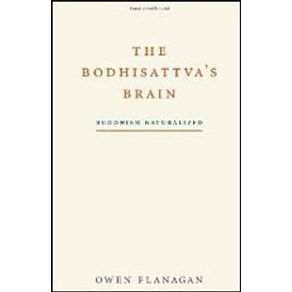If we are material beings living in a material world--and all the scientific evidence suggests that we are--then we must find existential meaning, if there is such a thing, in this physical world. We must cast our lot with the natural rather than the supernatural. Many Westerners with spiritual (but not religious) inclinations are attracted to Buddhism--almost as a kind of moral-mental hygiene. But, as Owen Flanagan points out in The Bodhisattva's Brain, Buddhism is hardly naturalistic. Atheistic when it comes to a creator god, Buddhism is otherwise opulently polytheistic, with spirits, protector deities, ghosts, and evil spirits. Its beliefs include karma, rebirth, nirvana, and nonphysical states of mind. What is a nonreligious, materially grounded spiritual seeker to do? In The Bodhisattva's Brain, Flanagan argues that it is possible to subtract the "hocus pocus" from Buddhism and discover a rich, empirically responsible philosophy that could point us to one path of human flourishing. "Buddhism naturalized," as Flanagan constructs it, contains a metaphysics, epistemology, and ethics; it is a fully naturalistic and comprehensive philosophy, compatible with the rest of knowledge. Some claim that neuroscience is in the process of validating Buddhism empirically, but Flanagan's naturalized Buddhism does not reduce itself to a brain scan showing happiness patterns. Buddhism naturalized offers instead a tool for achieving happiness and human flourishing--a way of conceiving of the human predicament, of thinking about meaning for finite material beings living in a material world.


